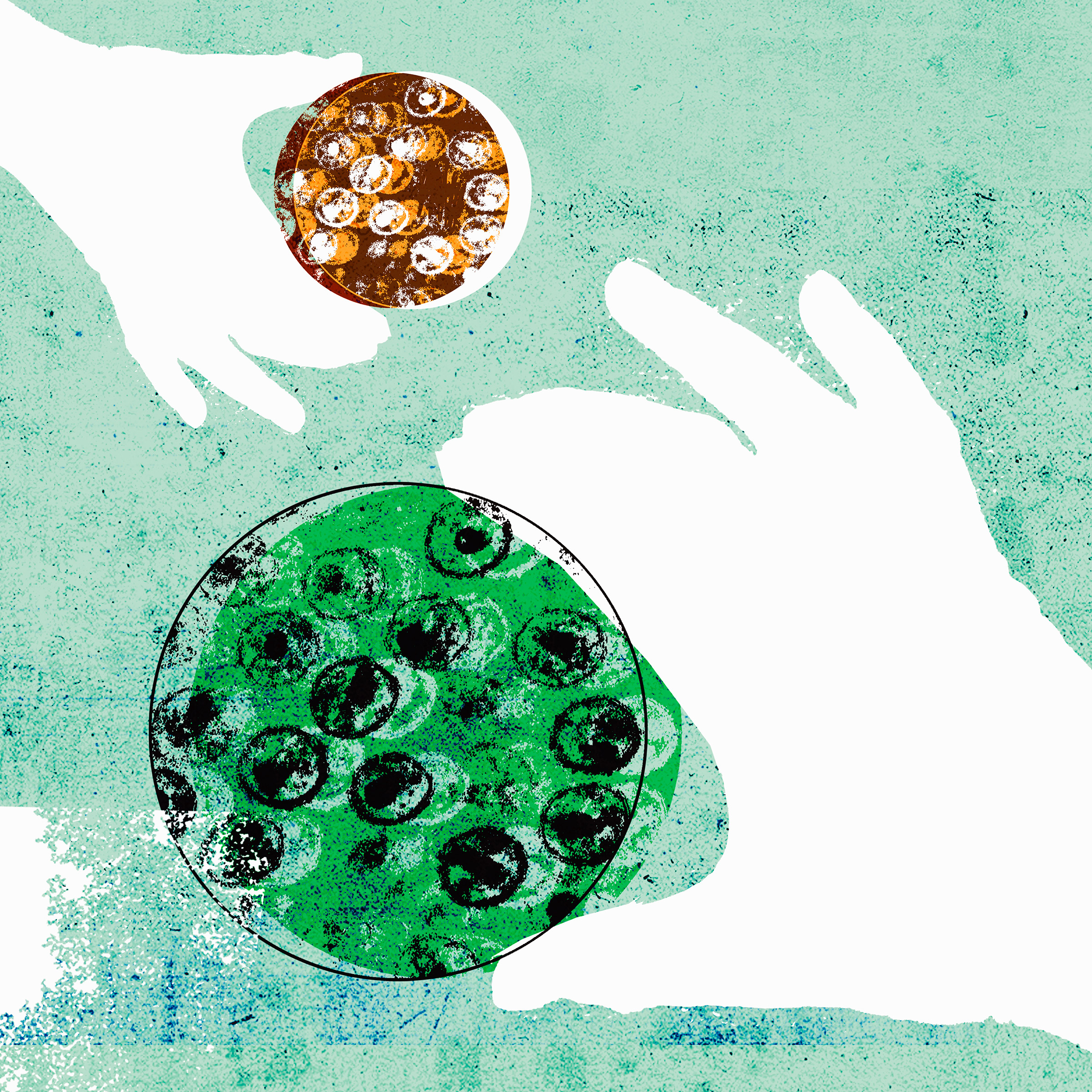
In the beginning, there were single-cell bacteria. They were the only life on earth for billions of years, then larger cells evolved, then multicellular organisms, and then plants and animals. But the bacteria never went away, and all organisms, including us humans, have had to learn to live with them. Today, the lessons they are teaching us could change the trajectory of human health for generations.
When bacteria were first discovered more than three centuries ago, most attention was on the ones we fought, which caused diseases like cholera, typhoid and tuberculosis. Through vaccines and antibiotics, we have made amazing progress in conquering these scourges. Now, through the combined tools of DNA sequencing and computer-based analysis, we have a first approximation of the innumerable other bacteria with which we cooperate daily.
Our microbiome is a diverse array of microbes–bacteria, as well as viruses, fungi and protozoa–that are more or less unique within each of us. We now understand that many are inherited, mostly from Mom, and this represents a continuity of life going back millennia. We know that the microbiomes of peoples living in the forests and savannas–who have had few of the benefits of modern medicine–have much more diverse microbiota than those in industrialized countries do. These comparisons strongly suggest that as the world modernized, we lost much of our microbial heritage.
And there’s increasing evidence that those changes are linked to the rise of modern diseases like obesity, diabetes, asthma, food allergies and inflammatory conditions of the intestine and of the brain. The same progress that has made us healthier in some ways has had unintended collateral effects on our ancient microbiome, putting it under great stress. These advances include, among others, food preservatives and, most important, the very thing we’ve long used to fight disease-causing bacteria: antibiotics.
As a society we have become addicted to antibiotics. They are great drugs for serious illnesses, but are being used more and more to treat ever milder conditions, in which their net positive effects are marginal. Even transient antibiotic exposures, especially in early life, can lead to long-term consequences like obesity–or, paradoxically, an increased risk of infection in subsequent months. Exposures of women before the birth of their children can lead to consequences in the next generation, and exposures of adults can enhance risk of diabetes, kidney stones and certain cancers. We clearly have to restore our lost microbes.
Meanwhile, my colleagues and I have been working to create a microbiota vault, where we can preserve our ancestral microbes for future generations, before many other important ones become extinct. Thankfully what we’ve learned in recent years about the microbiome may enable us to live more collaboratively with bacteria. In the not so distant future, for example, pediatricians may examine both babies and their diapers to determine whether that infant has an ideal microbiota, based on their genes and other markers. If not, they will be able to administer the “missing microbes” to optimize the baby’s health trajectory.
To fully harness the microbiome for therapy with true scientific basis will take time; in the interim, we need to educate people to avoid modern “snake oils” ranging from so-called probiotics to microbiome mapping that doesn’t actually tell you anything.
Imagine it’s 1950 and someone says to you, “There is a new field out there that is going to change how we do things, how we live … and the name of the field is ‘electronics.'” Today, we see how broad the implications of that have been, affecting virtually every aspect of modern life. That is how I believe we will be thinking about the microbiome some years from now; it is that big–maybe bigger–with the potential to make real improvements in our health.
Blaser is a professor at Rutgers University and director of its Center for Advanced Biotechnology and Medicine
More Must-Reads from TIME
- Cybersecurity Experts Are Sounding the Alarm on DOGE
- Meet the 2025 Women of the Year
- The Harsh Truth About Disability Inclusion
- Why Do More Young Adults Have Cancer?
- Colman Domingo Leads With Radical Love
- How to Get Better at Doing Things Alone
- Michelle Zauner Stares Down the Darkness
Contact us at letters@time.com